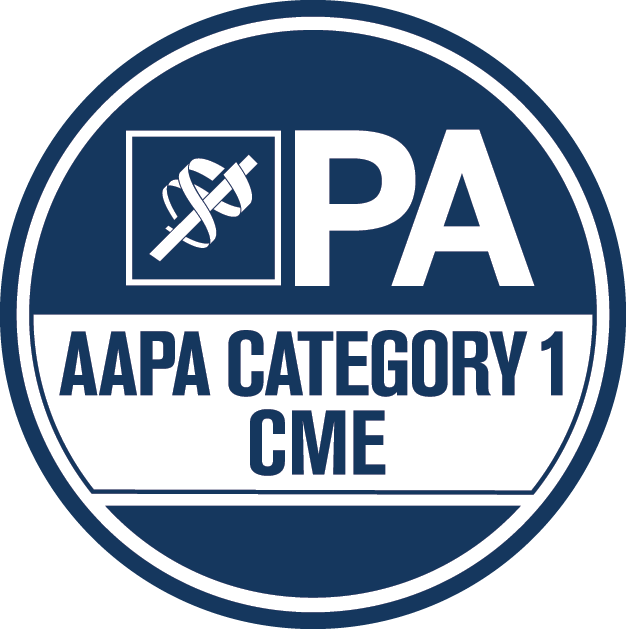Announcer:
Welcome to CME on ReachMD. This episode is part of our MinuteCME curriculum.
Prior to beginning the activity, please be sure to review the faculty and commercial support disclosure statements as well as the learning objectives.
Dr. Salsitz:
Today I'll be seeing a patient who is referred to me for an alcohol use disorder. I will do a screening, brief intervention, and referral to treatment.
[SBIRT Counseling Session]
Dr. Salsitz:
Richard, thank you for joining me today for our telehealth visit. I've reviewed your health records provided by your primary care physician, and he's somewhat concerned that you may have a problem with alcohol. I'd like to talk to you about
the Alcohol Symptom Checklist you filled out and sent back to me. It's a routine part of my practice. Is it okay with you if we talk about your alcohol use?
Patient:
Yes, but I don't think I have a problem. I'm not an alcoholic.
Dr. Salsitz:
Well, the amount of drinking you're doing, both on a daily and a weekly basis exceeds the recommended limits that the Department of Health and Human Services recommends, which is no more than 2 drinks a day for men and 1 drink for women.
Patient:
Really? I didn't realize there were recommendations on how much is safe to drink.
Dr. Salsitz:
Yes, these recommendations have been around for a while, and the latest advice on alcohol consumption is the less the better. Even 1 drink a day may increase the chances of developing an alcohol-related cancer, such as breast or throat cancer.
Patient:
So maybe I should try to cut down my drinking to these safer limits.
Dr. Salsitz:
What do you like about alcohol?
Patient:
Alcohol helps me deal with stress and makes it easier to socialize with other people.
Dr. Salsitz:
That's understandable. But what don't you like about alcohol?
Patient:
Well, I get hangovers. I drink more alcohol these days to get the same effects. Some days I wake up very jittery, and I'll just take a drink to calm my nerves.
Dr. Salsitz:
Sounds like the alcohol is having a negative effect on many parts of your life.
Patient:
Yeah, now that I'm thinking about it, yeah, definitely. Are there any effective treatments for my problem? I've heard you have to hit bottom before treatment can begin.
Dr. Salsitz:
Well, that's a myth which unfortunately persists. Treatment is effective at all stages of alcohol misuse.
Patient:
I feel so ashamed that I could be an alcoholic. And now I'm worrying about getting treatment. I've heard you could be there for over a month. I have a job and my family to consider, along with my privacy. All of that could be ruined.
Dr. Salsitz:
Well, let's not get ahead of ourselves. Most treatments can be done in an outpatient setting, which is confidential. Do you think you'd like to start treatment today?
Patient:
Yes, I think so. I'm really nervous about the road ahead. What are my options?
Dr. Salsitz:
Your nervousness is very understandable. Generally, for moderate alcohol use disorder, as it's commonly called, we try to combine effective medications with behavioral therapy, which means speaking with a therapist trained to treat alcohol use disorder.
So I recommend starting with naltrexone tablets for a few days, then transitioning to a once-monthly intramuscular injection.
I'm going to give you a phone number of an excellent therapist that many of my patients have worked with and found to be caring and supportive and, importantly, nonjudgmental.
In combination, I believe we will be able to reduce your alcohol consumption to a less risky amount.
Patient:
That sounds like a reasonable plan.
Dr. Salsitz:
Well, I think it's a really good idea. Let's make the next appointment in 1 week to assess how treatment is working. How does all this sound to you?
Patient:
I'm on board.
[End of SBIRT Counseling Session]
Dr. Salsitz:
So we just witnessed a patient who felt he didn't have a problem with alcohol and was concerned about the stigma surrounding alcohol use disorder and potential treatments. By following the SBIRT paradigm, Screen, Brief Intervention, Refer to Treatment, the patient was able to make the decision for himself and maintain his autonomy and dignity.
Announcer:
You have been listening to CME on ReachMD. This activity is provided by Prova Education and is part of our MinuteCME curriculum.
To receive your free CME credit, or to download this activity, go to ReachMD.com/Prova. Thank you for listening.






